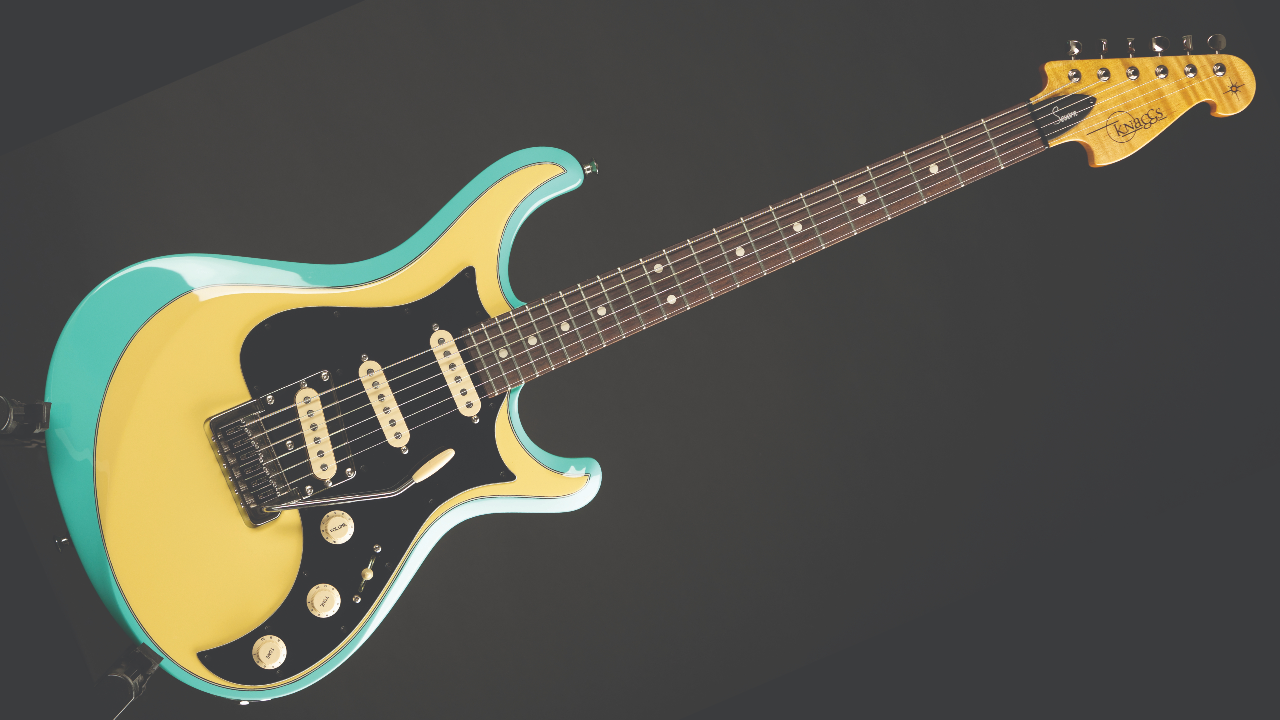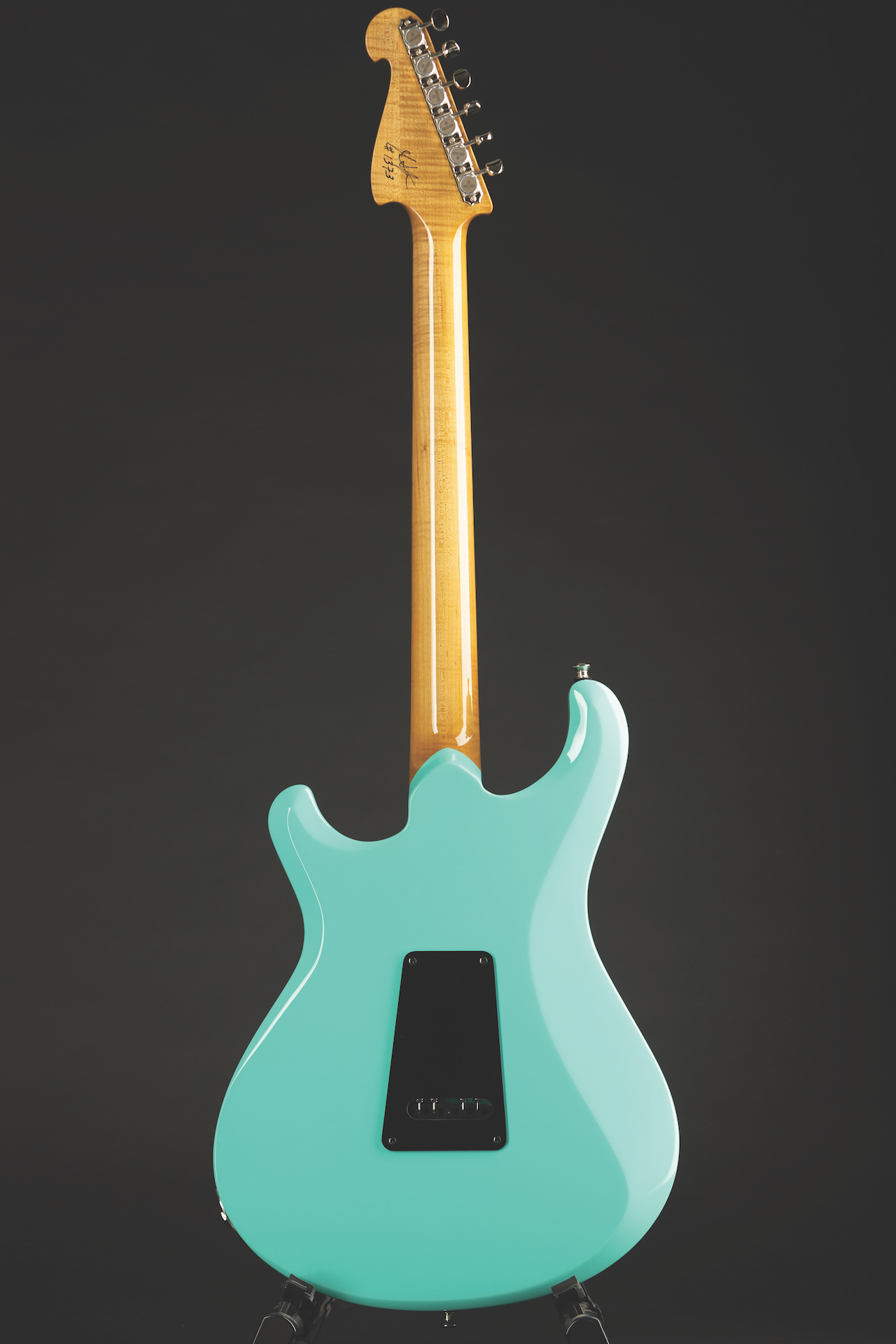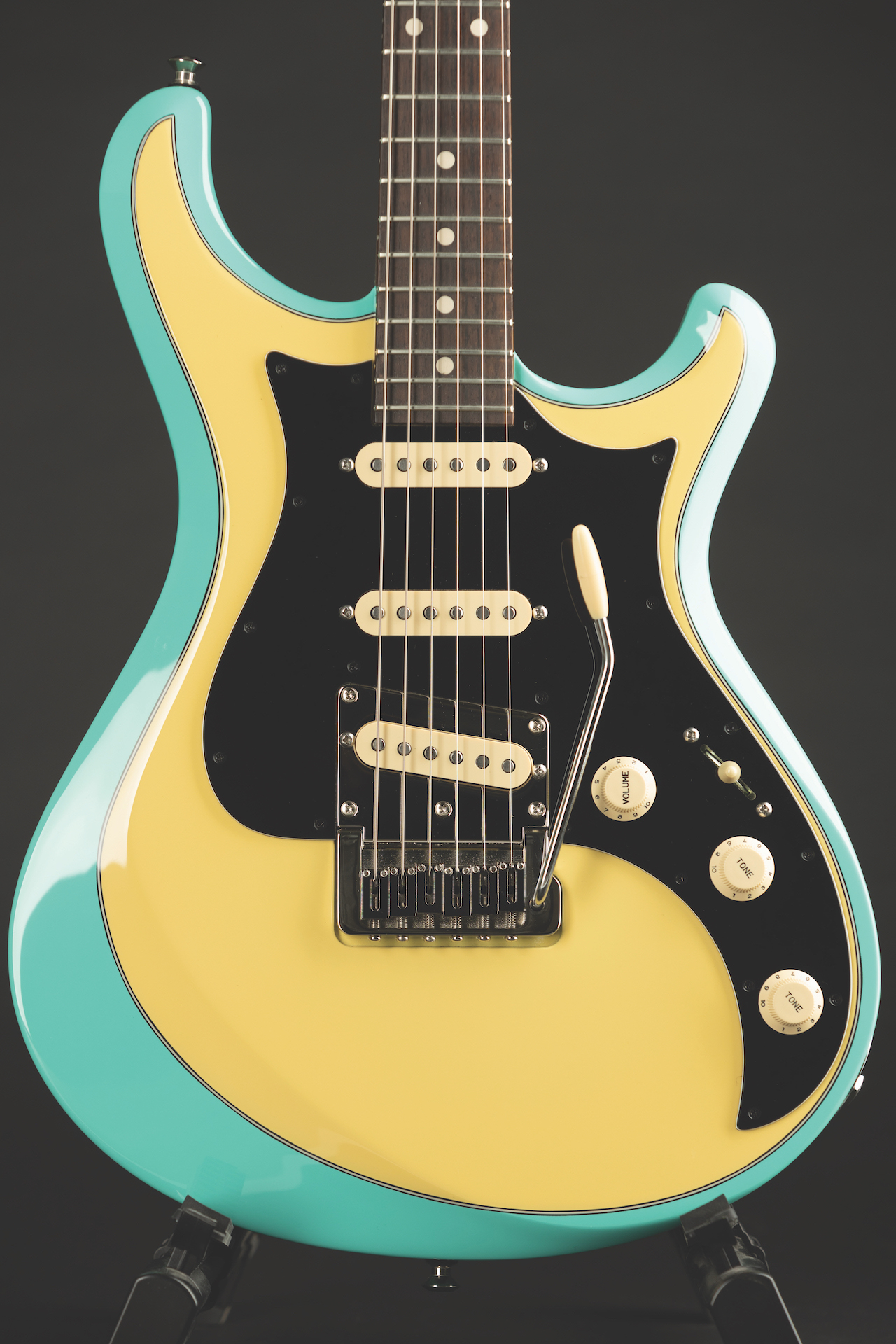The mission: create a better kind of S-style guitar. Joe Knaggs on the inspiration behind his stunning hardtail-bridge-toting Severn Trem SSS
"I had a ’61 Stratocaster and wanted the same style of guitar with a fretboard radius of eight and a half inches, so it wouldn’t fret out when I’d bend strings…" Meet the drool-some "Telecaster-version" yellow Severn Trem SSS

Joe Knaggs and his team have been building exquisitely crafted solid and semi-hollow custom and signature guitars for more than 20 years, so it’s always a treat when one shows up here for a test drive, as this Severn Trem SSS did. Named for a river in Maryland, the Severn harks back to Knaggs’ days working at PRS before he launched his own guitar company.
“The inspiration behind the Severn was to create a guitar that I wanted to play,” he explains. “I had a ’61 Stratocaster at the time and wanted a Strat-style guitar with a fretboard radius of eight and a half inches, so it wouldn’t be as curved as the Fender and fret out when I’d bend strings.
"There’s a lot of other factors that led to where the Severn ended up, but the big one was when I made a hardtail bridge for another guitar called the Choptank — I wanted all my guitars to be named for tributaries of the Chesapeake Bay — so I looked at a Tele, and the front of the bridge plate was lifting up because it wasn’t screwed down.
"That didn’t seem right to me, so I made a bridge plate that would screw down in front. And when I put it on the guitar and strung it up and played it, that thing rang better than I’d heard any other electric guitar. That hardtail bridge was really what inspired me to start a guitar company.”
The Severn’s alder body has an S-style shape, with contours on the front and back and a beveled heel at the 15th position that makes it easy to slide your hand around and reach the high frets. What really makes this guitar pop visually is the Seafoam/TV Yellow finish with three-ply purfling inlaid between the colors.
It creates the illusion that the yellow is the pickguard; in reality there’s a black pickguard sitting atop that carries the pickups, knobs and five-way switch.
But apart from the finish, the standout item on this build is the proprietary Chesapeake trem bridge, a unique two-piece affair with a plate surrounding the rear pickup, in Tele fashion, that’s attached to a hinged bridge.
All the latest guitar news, interviews, lessons, reviews, deals and more, direct to your inbox!
As Knaggs explains, “That steel plate creates a magnetic field around the pickup, so you get the Telecaster thing going on. But the biggest reason our bridge is different is because I took that Choptank bridge and cut it in half. I liked the idea of the saddles sitting on the back half. It creates a different effect, because it’s more like a Tele in the way the sound is transferred into the middle of the body.
"So with this design, the front plate is screwed down solid and the bridge is floating against it. It’s not a knife edge that’s sticking up and rocking back and forth; it’s actually a plate that a hinge is attached to and there are bearings that let it move that back and forth. It gives you a very smooth feel on the trem, and it comes back to the right spot, so it stays in tune really well.”
I took that Choptank bridge and cut it in half. It's more like a Tele in the way the sound is transferred into the middle of the body
Moving to the neck, we find a sweet-looking piece of figured hard-rock maple that attaches to the body via a glued-in joint. The 25 ½–inch-scale fingerboard is East Indian rosewood with dot inlays, and it carries 22 smoothly finished medium frets.
At the top, the strings ride over a polished graphite nut on their way to a set of nickel-plated Gotoh locking tuners on the six-in-line headstock. No string tree is needed due to the mild headstock angle, which Knaggs says is just enough to eliminate the string tree but doesn’t pinch the strings in the nut.
The neck’s C shape has a slight V, which feels excellent in the hand, and the 8 ½–inch-radius fretboard is comfortable under the fingers and easy to bend on. The factory setup yielded excellent low-action playability and tuneful intonation along the entire fretboard, and kudos to the butter-smooth floating trem, which has a precise feel on the bar and returns to pitch very well when used aggressively.
With all of the vibration enhancing elements at play here — especially the über-solid bridge plate — it’s not surprising the Severn’s acoustic voice is resonant and sustaining. When strumming this guitar you can feel the vibrations coming from the center of the body and rolling straight up through the neck.
At 7.6 pounds, the Severn is an easy hang when standing, and the included Dunlop Straploks help to ensure it won’t slide off a strap button.

The pickups on our review guitar are Lindy Fralin Blues Special single-coils with staggered poles and Alnico V magnets. Optimized for a thicker sound and more output than stock Strat pickups, they have a DC resistance of 6.6k-ohms for the neck and middle units and 7.1k-ohms for the bridge.
Wired through a five-way switch, along with a master volume and two tone controls — one for the neck and middle pickups and one for the bridge — the Fralins proved a good match here.
Through a Fender ’48 Dual Professional combo and a Deluxe Reverb, the Severn delivered deep, dimensional tones that were nicely balanced top to bottom, with ringing highs and a round, meaty low end.
The neck pickup sounded great for bluesy lead playing though the touch-responsive Dual Pro, and by flicking the switch to the neck/middle or middle/bridge combinations, the sweet, chiming tones sounded so dialed in for rhythm playing and funky riffing it was hard to get off them.
The Severn responded beautifully when played through new compact UAFX pedals —particularly the 1176 Studio Compressor and Orion Tape Echo — and it cranked out killer grind with gobs of sustain on the rear-pickup setting with distortion from a TWA SH9 pedal.
The Severn Trem SSS is so well sorted that it’s easy to find an inspiring path when playing it, and with all the available options in woods, hardware, finishes, pickups and custom work, it can be steered in practically any direction you want.
This amazing instrument is just one example of what Knaggs Guitars offers in the Chesapeake, Influence and Signature series, and it’s interesting to reflect on how it all started: Joe Knaggs needed an improved S-style guitar. The Severn is the result, and the rest is history.


Art Thompson is Senior Editor of Guitar Player magazine. He has authored stories with numerous guitar greats including B.B. King, Prince and Scotty Moore and interviewed gear innovators such as Paul Reed Smith, Randall Smith and Gary Kramer. He also wrote the first book on vintage effects pedals, Stompbox. Art's busy performance schedule with three stylistically diverse groups provides ample opportunity to test-drive new guitars, amps and effects, many of which are featured in the pages of GP.
